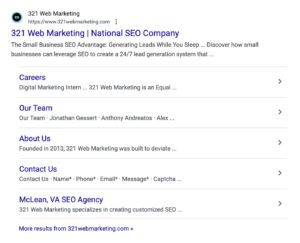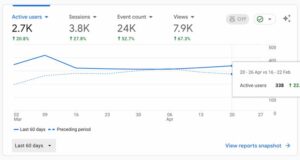In the complex digital ecosystem of 2025, business owners and marketing managers often have misconceptions about what’s actually driving visitors to their websites. While many attribute leads and conversions to direct marketing efforts like paid ads or email campaigns, the reality is that organic search—powered by SEO—frequently accounts for a much larger percentage of traffic than most realize.
The Hidden Giant in Your Traffic Sources
When you open your analytics dashboard, you likely see traffic categorized into several buckets: direct visits, referrals, social media, paid search, and organic search. What many business leaders don’t recognize is that organic search often quietly dominates these metrics, even for companies that haven’t deliberately invested in SEO.
Why does this happen? Because every website, intentionally or not, is being indexed and ranked by search engines. The question isn’t whether you’re participating in SEO—it’s whether you’re doing it strategically or leaving it to chance.
The “Accidental SEO” Phenomenon

Many businesses experience what we at 321 Web Marketing call “accidental SEO”—when content naturally ranks for certain keywords without deliberate optimization. This happens because:
- Your business name, location, and basic services automatically become searchable
- Industry-specific terminology on your website aligns with search queries
- Basic website structures created by modern platforms have fundamental SEO elements built in
While accidental SEO might generate some traffic, it’s like having a retail store with no signage, merchandising strategy, or customer flow design. You’ll get some foot traffic, but you’re missing the opportunity to multiply your results.
Why Your Analytics Might Be Misleading You
One reason business owners underestimate SEO’s impact is due to attribution challenges. Consider these scenarios:
- A prospect searches for a solution you offer, finds your website through organic search, but doesn’t convert immediately
- Days later, they remember your company and directly type your URL
- Your analytics registers this as “direct traffic” rather than attributing it to the original organic search
Studies suggest that up to 60% of “direct traffic” actually originated from organic search somewhere in the customer journey. This means SEO’s contribution to your business growth is likely significantly underreported in your analytics.
The Compounding Value of Strategic SEO
Unlike paid advertising that stops delivering the moment you pause your budget, SEO creates assets that continue working for your business 24/7. A well-optimized piece of content can:
- Generate traffic for years with minimal additional investment
- Build authority that strengthens your entire website’s performance
- Create multiple entry points to your sales funnel
- Establish thought leadership that nurtures prospects through the buying journey
When businesses engage in strategic SEO rather than leaving it to chance, the difference is often dramatic. We’ve seen clients double or triple their qualified leads within six months of implementing a comprehensive SEO strategy.
Warning Signs Your Business is Missing SEO Opportunities
How do you know if you’re neglecting this critical channel? Watch for these red flags:
- Your website traffic fluctuates dramatically month to month
- Competitors consistently outrank you for industry-relevant terms
- Your content generates initial interest but quickly loses visibility
- Most of your leads come from referrals or paid channels with high acquisition costs
Each of these signals indicates untapped potential in your organic search performance.
From Passive to Proactive: Taking Control of Your SEO

The good news is that transitioning from accidental to intentional SEO doesn’t require overhauling your entire marketing strategy. It starts with:
- Understanding which keywords drive value for your business (not just traffic)
- Aligning your content strategy with your prospects’ actual search behavior
- Ensuring technical fundamentals support rather than hinder your visibility
- Monitoring and adapting to search engine algorithm updates
For most B2B and professional service firms, SEO shouldn’t exist in isolation—it should integrate with your broader marketing strategy, reinforcing your messaging across all channels.
The Bottom Line
Whether you’re actively managing it or not, SEO is likely already a significant driver of your business’s online visibility. The question is whether you’re maximizing this opportunity or leaving potential growth on the table.
The most successful companies recognize that in today’s digital landscape, strategic SEO isn’t just another marketing tactic—it’s the foundation upon which other digital efforts build. By bringing intention and expertise to this critical channel, you transform what might be a trickle of organic traffic into a consistent flow of qualified prospects.
When you understand where your website traffic truly comes from—and the outsized role that SEO plays in that equation—you gain clarity on where to focus your digital marketing investments for maximum impact.
321 Web Marketing helps B2B and professional service firms implement strategic SEO programs that drive measurable business results. Our quarterly business reviews ensure your digital marketing efforts align with your evolving business goals.







